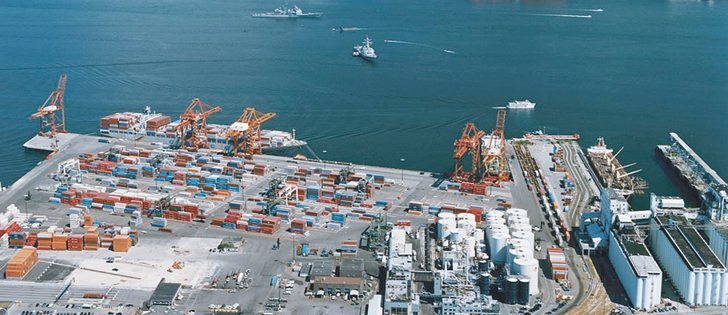West Coast Reduction, a processor of meat and fish byproducts, also ships canola oil at port facility
Canola growers might be surprised to learn what company plays a vital role in shipping their vegetable oil to export markets.
West Coast Reduction has become a major player in the industry.
“We’re the gateway to the marketplace for the canola oil business,” said president Barry Glotman.
The company built its reputation in the agriculture industry by becoming the largest independent renderer in Western Canada, with facilities in Vancouver, Saskatoon, Edmonton, Calgary, Lethbridge and Nanaimo, B.C.
It picks up meat and fish byproducts unsuitable for human consumption from farms, feedlots, restaurants, butcher shops, supermarkets and processors and renders them into finished products.
Read Also

Farming Smarter receives financial boost from Alberta government for potato research
Farming Smarter near Lethbridge got a boost to its research equipment, thanks to the Alberta government’s increase in funding for research associations.
The company renders 10,000 tonnes of beef, pork, poultry and fish byproducts a week into several types of meal and tallow.
It has a large storage tank farm at its terminal in Port Metro Vancouver, which was originally built to export tallow to Asia.
However, the tanks are increasingly being filled with canola oil destined for export markets.
Canada exported 2.37 million tonnes of canola oil last year, according to the Canadian Oilseed Processors Association.
Much of the oil is shipped by rail to the United States, and the rest goes by ship to overseas markets, primarily in the Pacific Rim.
“As far as the exports offshore, we probably handle close to two-thirds of it,” said Rob Jones, director of sales with West Coast Reduction.
Glotman is confident the canola side of his family business will continue to grow. For example, Richardson International recently completed an expansion of its crush facility in Yorkton, Sask., and is working on doubling capacity at its Lethbridge plant.
“The future looks very bright for more volumes to be able to come through Port Metro Vancouver,” he said. “We’re very bullish on growing that business, and that’s why in the last year we’ve spent a lot of money on infrastructure to be able to provide services as that industry grows.”
The company has completed a $9.5 million expansion of its shipping terminal in April, upgrading rail lines and a piping system that delivers oil to marine vessels.
The upgrades increased the firm’s canola oil handling capacity by 25 percent.
West Coast Reduction has 84,000 tonnes of liquid storage capacity. It ships 600,000 tonnes of canola oil and canola biodiesel and 150,000 tonnes of tallow a year out of the facility.
Jones said the company now has the capacity to ship one million tonnes of canola per year, so the facility is currently underused.
It stores and loads canola oil for Archer Daniels Midland, Richardson International and other smaller clients.
It also exports biodiesel from ADM’s processing plant in Lloydminster, Alta.
West Coast Reduction ships oil to China, South Korea, Japan, Chile, Mexico and other markets.
“Canola oil from our facility really goes anywhere in the world,” said Jones.
Bunge and Cargill use the recently commissioned canola oil storage facility at Vancouver’s Pacific Coast Terminal to get product to market.
Bunge used to have storage tanks at Neptune Terminals in Vancouver, but those are being converted to coal storage.
Pacific Coast Terminal loaded its first vessel March 17. The facility has 45,000 tonnes of storage capacity and is expected to ship 400,000 tonnes of oil annually for the next two years and then increase exports to 750,000 tonnes annually.
Louis Dreyfus, the other big player in the canola crushing business, ships most of its product by rail to the United States.
Contact sean.pratt@producer.com


















